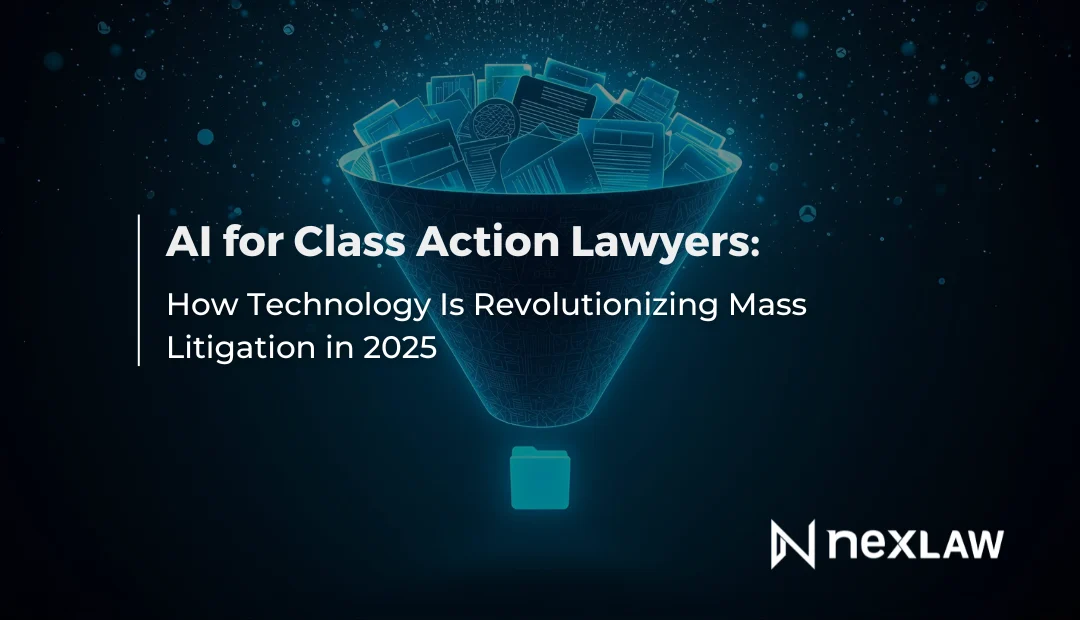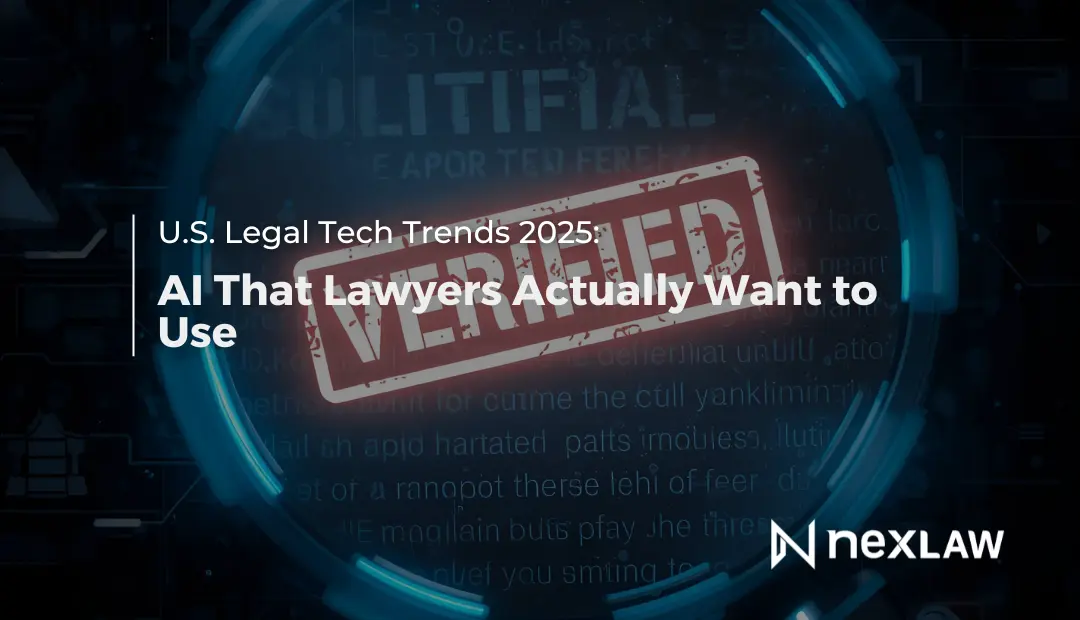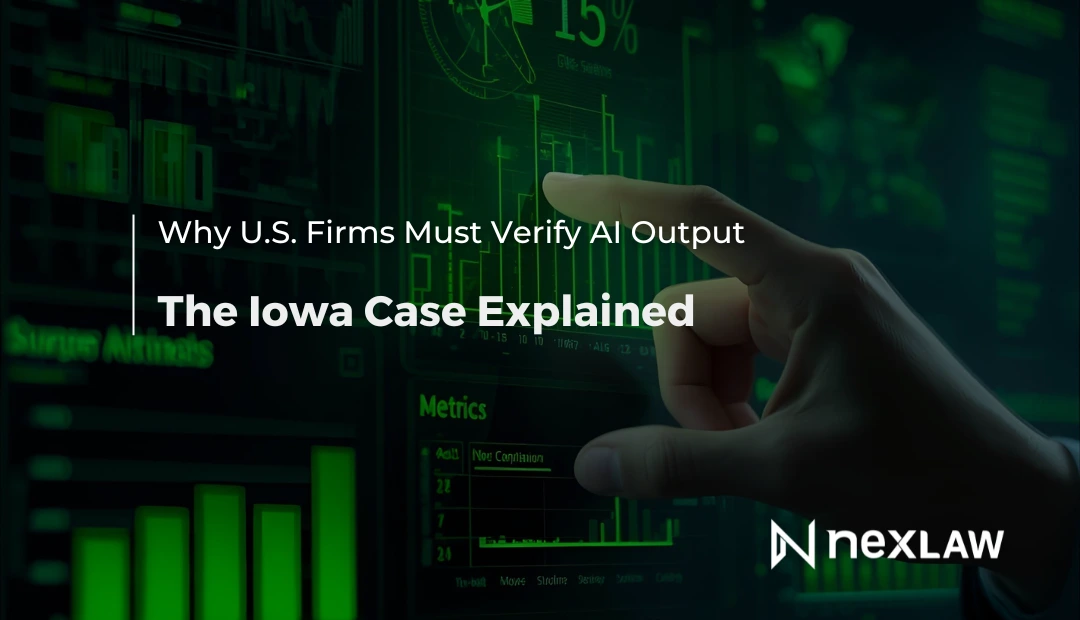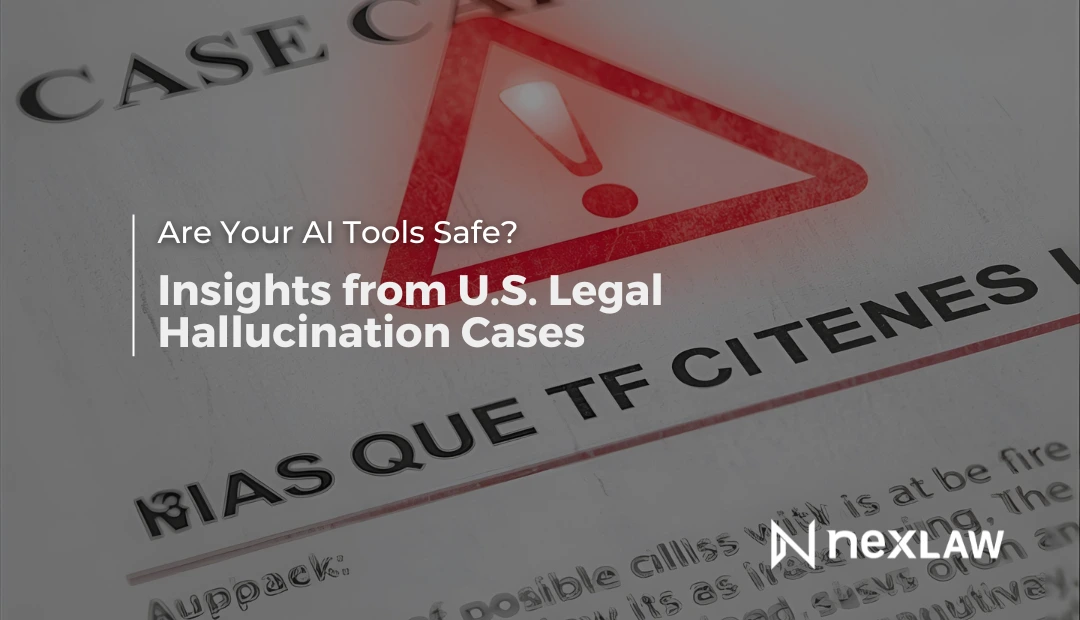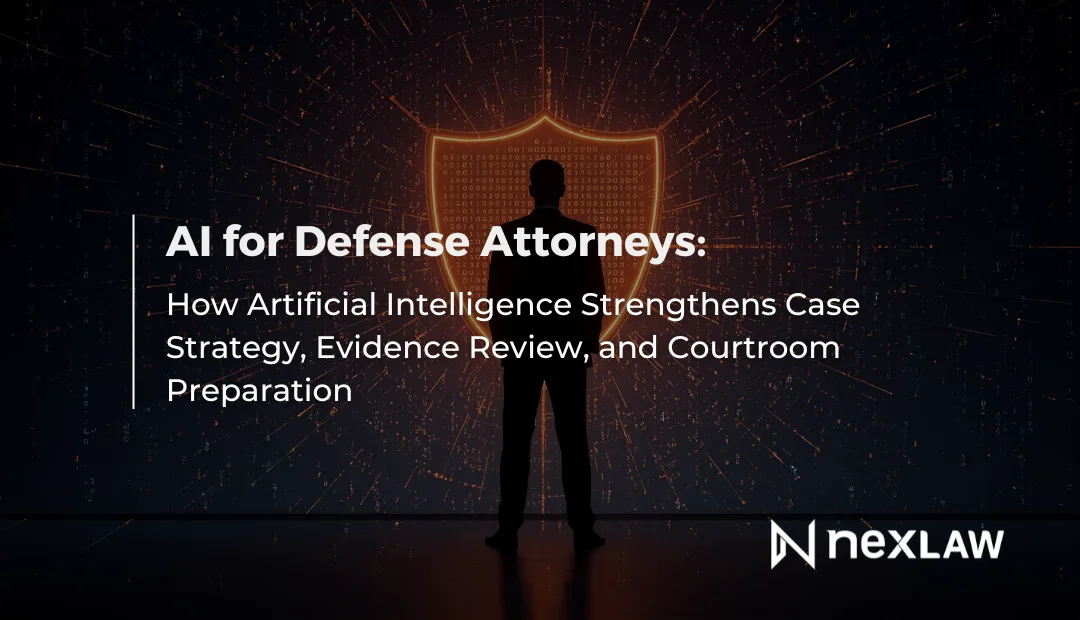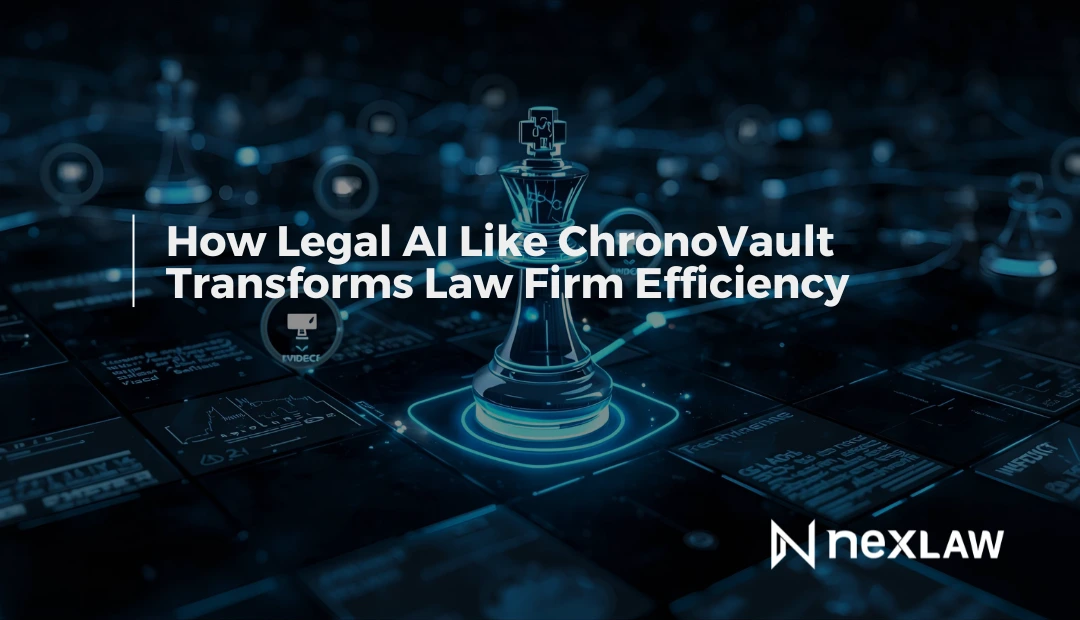AI for Class Action Lawyers: How Technology Is Revolutionizing Mass Litigation in 2026
Class action litigation has always been one of the most resource-intensive areas of law. Managing thousands of plaintiffs, sifting through millions of documents, and meeting stringent class certification requirements demands extraordinary time, precision, and expertise. For class action lawyers juggling these demands, artificial intelligence is no longer a luxury—it’s becoming essential.
Unlock Legal Insights Instantly!
In this comprehensive guide, we’ll explore how AI for class action lawyers is transforming every stage of mass litigation, from initial plaintiff intake to final settlement administration. Whether you’re handling consumer protection cases, securities fraud, employment disputes, or mass tort claims, understanding how to leverage AI tools can dramatically improve your efficiency, accuracy, and case outcomes.
The Unique Challenges Facing Class Action Attorneys
Class action litigation presents challenges that set it apart from traditional litigation:
Scale and Volume: Class action cases often involve thousands or tens of thousands of plaintiffs and millions of pages of discovery documents. Manual review and management of this volume is nearly impossible within reasonable timeframes and budgets.
Class Certification Requirements: Meeting Rule 23’s requirements for commonality, typicality, adequacy, and numerosity demands meticulous evidence mapping and legal analysis. Any gaps in demonstrating these elements can derail an entire case.
Complex Damages Calculations: Calculating damages across diverse plaintiff groups with varying circumstances requires sophisticated analysis, especially when dealing with wage and hour claims, consumer losses, or securities damages.
Coordination Across Multiple Jurisdictions: Many class actions involve multidistrict litigation (MDL) or coordination with state court actions, requiring seamless organization across different venues and legal teams.
Tight Deadlines and Budget Constraints: Certification motions, bellwether trials, and settlement negotiations operate under strict deadlines, often with limited resources relative to well-funded corporate defendants.
These challenges create a perfect use case for AI-powered legal technology.
How AI for Class Action Lawyers Works
AI tools leverage several advanced technologies:
Natural Language Processing (NLP): AI systems can read, understand, and analyze legal documents at scale, identifying relevant information, patterns, and inconsistencies across massive document sets.
Machine Learning Algorithms: These systems learn from attorney input to improve document classification, relevance predictions, and pattern recognition over time.
Predictive Coding: AI can prioritize documents for review based on relevance, significantly reducing the volume attorneys must manually examine.
Automated Data Extraction: AI can automatically extract key information from plaintiff questionnaires, medical records, employment documents, and financial statements.
Pattern Recognition: AI systems can identify patterns across thousands of plaintiffs or documents that would be impossible for human reviewers to spot manually.
Key Applications of AI in Class Action Litigation
1. Plaintiff Management and Intake
Managing thousands of class members is one of the most administratively burdensome aspects of class action work. AI streamlines this process by:
- Automated Intake Processing: AI systems can process thousands of plaintiff questionnaires and notices, extracting key information and populating databases automatically.
- Deduplication: AI identifies duplicate plaintiffs or submissions, ensuring accurate class size calculations.
- Eligibility Analysis: Automated screening against class definition criteria helps quickly identify who qualifies as a class member.
- Damages Calculation: AI can automatically calculate preliminary damages ranges for individual plaintiffs based on their specific circumstances and claim types.
2. Class Certification Support
Obtaining class certification is the critical gateway in any class action. AI helps attorneys build stronger certification motions by:
- Rule 23 Evidence Mapping: AI systems can automatically map evidence to the four requirements of Rule 23—commonality, typicality, adequacy, and numerosity.
- Precedent Research: AI-powered legal research quickly identifies relevant certification precedents and their treatment across jurisdictions.
- Common Question Identification: Natural language processing can analyze plaintiff claims and discovery to identify common questions of law and fact.
- Draft Certification Motions: AI can generate draft certification motions with citation-backed arguments, significantly reducing preparation time.
3. Mass Discovery and Document Review
Document review represents one of the largest cost centers in class action litigation. AI dramatically reduces these costs through:
- Predictive Coding and Technology-Assisted Review (TAR) AI learns what documents are relevant and prioritizes them, reducing review volumes by 70-85%.
- Pattern Detection: AI identifies patterns across defendants, time periods, or document types that might reveal evidence of systematic conduct.
- Privilege Review: Automated identification of potentially privileged communications accelerates privilege log preparation.
- Key Document Identification: AI surfaces the most important documents for depositions, motions, or trial.
- Timeline Generation: Automated creation of chronologies from discovery documents helps visualize the sequence of events.
4. Bellwether Trial Preparation
In MDL proceedings and large class actions, bellwether trials test key issues and inform settlement negotiations. AI supports this process by:
- Representative Case Selection: AI analysis helps identify plaintiffs whose cases are truly representative of the broader class.
- Trial Evidence Organization: AI creates organized evidence packets, exhibits, and chronologies for trial.
- Witness Preparation: AI can analyze deposition transcripts to identify inconsistencies or key testimony.
- Strategy Development: AI-powered analytics provide insights into successful arguments and potential weaknesses.
5. Settlement Administration
Once a case settles, AI continues to provide value during administration:
- Claims Processing: Automated review and validation of settlement claims from class members.
- Allocation Modeling: AI helps model different settlement allocation scenarios to ensure fairness.
- Notice Tracking: Tracking and analyzing class notice responses and opt-outs.
- Reporting & Compliance: Automated generation of reports required by the court and regulatory bodies.
Real-World Impact: AI Success Stories in Class Action Litigation
Class action firms using AI-powered platforms are seeing transformative results:
- 85% reduction in document review time for mass discovery in consumer protection cases
- Certification motion preparation time cut from weeks to days with AI-assisted legal research and drafting
- Thousands of plaintiffs efficiently managed per case through automated intake and damages calculation
- Significant cost savings in administrative overhead, allowing firms to take on more cases and serve more clients
These improvements aren’t just about speed—they enable class action attorneys to handle cases they previously couldn’t take due to resource constraints, ultimately expanding access to justice for injured parties.
Essential Features to Look for in AI Tools for Class Action Lawyers
Not all AI legal tools are created equal. When evaluating AI legal platforms for class action work, look for:
- Class Action-Specific Features: The tool should be designed with class action workflows in mind, not just general litigation support.
- Scalability: The system must handle thousands of plaintiffs and millions of documents without performance degradation.
- Rule 23 Support: Built-in functionality for mapping evidence to class certification requirements.
- Multi-Jurisdiction Capability: Access to federal and state case law, statutes, and rules across relevant jurisdictions.
- Integration Capabilities: The ability to integrate with your existing case management, e-discovery, and document management systems.
- Security and Confidentiality: Robust data protection measures that maintain attorney-client privilege and comply with ethical obligations.
- Intuitive Interface: Complex cases require sophisticated tools, but those tools should still be user-friendly for attorneys and staff.
- Citation Verification: Any AI-generated legal research or drafting should include verified citations that you can rely on in court filings.
How NexLaw AI Supports Class Action Litigation
NexLaw AI provides a comprehensive platform specifically designed for the unique demands of class action and mass tort litigation. The platform includes three core tools that work together to support your entire class action workflow:
NeXa: Legal Assistant Provides AI-powered research and certification analysis for Rule 23 matters. It identifies common questions and numerosity with verified citations, offers jurisdiction-specific precedent research, and helps draft certification motions and notices with precision.
ChronoVault: Class Action Command Center Transforms plaintiff data and discovery into organized timelines and exhibits. It offers automated intake processing, damages range calculations at scale, pattern recognition across defendants and matters, and MDL tracking with organized evidence packets.
TrialPrep: Class Action Command Center Helps prepare for certification hearings, bellwether trials, and settlements. It provides typicality and adequacy evidence outlines, expert coordination for class-wide damages testimony, and settlement allocation modeling with fairness analysis.
Together, these tools enable class action attorneys to manage thousands of plaintiffs efficiently, prepare certification motions faster, and reduce document review time significantly—all while maintaining the highest standards of legal analysis and ethical practice.
Implementing AI in Your Class Action Practice: Getting Started
If you’re ready to incorporate AI into your class action practice, here’s how to begin:
- Assess Your Current Workflow: Identify the most time-consuming or error-prone aspects of your practice. These are often the best areas for initial AI implementation.
- Start with a Pilot Project: Choose a current case or discrete task (like document review on a specific issue) to test AI tools before full implementation.
- Train Your Team: Ensure attorneys, paralegals, and staff understand both how to use AI tools and their limitations. AI augments attorney judgment—it doesn’t replace it.
- Develop AI-Enhanced Workflows: Redesign your processes to take advantage of AI capabilities while maintaining necessary human oversight and review.
- Monitor and Measure Results: Track metrics like time savings, cost reductions, and quality improvements to demonstrate ROI and refine your approach.
- Stay Ethical: Always maintain attorney supervision of AI outputs, protect client confidentiality, and ensure AI tools don’t compromise your professional responsibilities.
The Future of AI in Class Action Law
AI technology for class action litigation is rapidly evolving. Emerging capabilities on the horizon include:
- Predictive Analytics: AI systems that can predict litigation outcomes, settlement values, and optimal case strategies based on historical data.
- Automated Expert Analysis: AI that can perform preliminary economic, statistical, or scientific analysis to support expert testimony.
- Real-Time Class Monitoring: AI systems that continuously monitor for potential new class members or similar injuries as cases progress.
- Enhanced Settlement Optimization: Sophisticated modeling of settlement allocation scenarios to maximize fairness and judicial approval likelihood.
As these technologies mature, class action lawyers who embrace AI will have significant advantages in case selection, efficiency, and outcomes.
Common Concerns About AI for Class Action Lawyers (And Why They’re Manageable)
Will AI replace class action attorneys?
No. AI is a tool that enhances attorney capabilities, not a replacement for legal judgment, strategy, and advocacy. Complex legal analysis, client counseling, courtroom advocacy, and ethical decision-making remain firmly in the realm of human attorneys.
Is AI-assisted work ethically permissible?
Yes, with proper oversight. The ABA and state bars recognize that attorneys can use technology to assist with legal work, provided they maintain competence, supervise outputs, and protect client confidentiality. AI should be viewed like any other research or document review tool—helpful, but requiring attorney review and validation.
What about data security and confidentiality?
Reputable AI legal platforms are designed with privacy-first architectures that maintain attorney-client privilege and comply with data protection requirements. Look for platforms with end-to-end encryption, secure cloud storage, and clear data handling policies.
Is AI too expensive for smaller class action firms?
Many AI platforms offer flexible pricing models that make them accessible even for solo practitioners and small firms. Additionally, the efficiency gains and ability to take on larger cases often provide rapid return on investment.
Conclusion: Embracing AI for Competitive Advantage
AI enables class action attorneys to handle more cases, prepare stronger motions, process discovery efficiently, and achieve better outcomes.
The question isn’t if AI will transform class action litigation—it already is. The question is whether your firm will lead or lag behind.
Click here to explore NexLaw’s Class Action Litigation Solutions.
